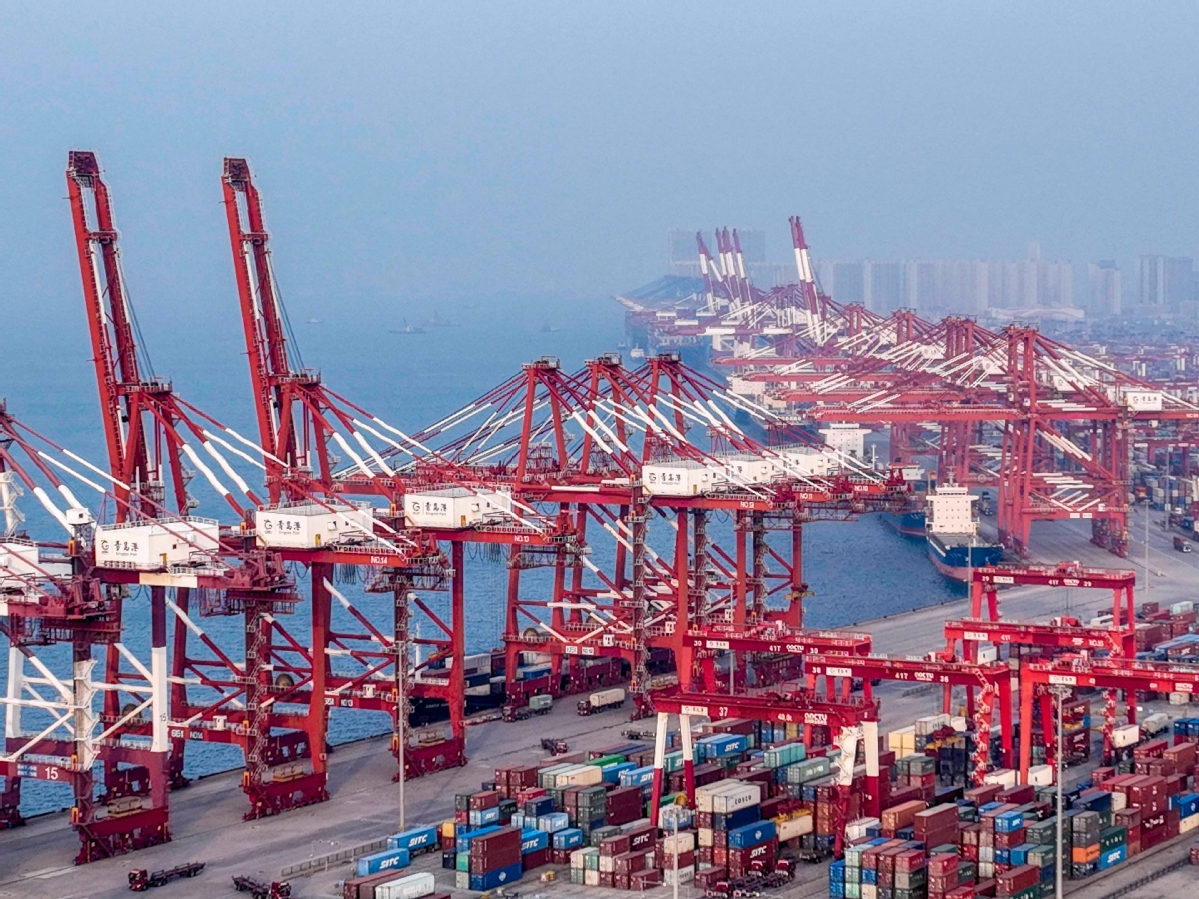Politics holds back bilateral trade growth


Gloss taken off US goods exports to China by services hit from poor ties, pandemic
US goods exports to China last year increased 21 percent to a record high of $149 billion, but the amount of US services bought by Chinese customers shrank by more than a third in 2020, with the latter attesting to the devastating impact of the pandemic and a soured bilateral relationship.
The contrasting picture on bilateral trade was presented in the US Export Report 2022, an annual analysis published by the US-China Business Council, or USCBC, a trade group of 260 companies that do business in China. Released on Tuesday, the latest data on US exports to China paints "a picture of extremes", said Craig Allen, president of USCBC, who notes that the tariffs and the trade conflict between the two economies were a mistake to be corrected, and that he saw uncertainties lying ahead.
Despite the dual pressure of the COVID-19 pandemic and tariffs, the buoyant US goods exports to China remained a strong trend, said the report.
As in years past, China remained the United States' third-largest goods export market in 2021. In all, China was the top export market for four states, in the top three for 38, and in the top five for 47.
At a webinar for the release of the report, Allen said that "with good strong domestic growth in China" and also the exclusions offered by the US authorities, "we see this relatively robust growth in US exports".
All 50 states exported goods and services to China and benefited from the more than 858,000 jobs supported by these exports, the USCBC said.
The bump in goods exports was welcome news, especially in rural states, where Chinese buyers scooped up soybeans, corn, sorghum, pork, and other agricultural commodities. Other sectors seeing "sizable" exports last year include oil and gas, semiconductors, and medicines and pharmaceuticals, it said.
However, from 2019 to 2020, services exports related to personal travel and tourism and business travel from China to the US plunged by 90 percent each, largely as a result of fewer Chinese travelers coming to the US in the first year of the pandemic.
Education exports to China, which cover tuition paid by Chinese students to US universities and other education-related expenditures, dropped by more than 19 percent.
Chinese students have been the largest sources of international students studying in the US. However, one study suggests that the US is becoming a less desirable location to study for Chinese students, according to the USCBC report.
It noted that friction in the bilateral relationship and unfavorable US visa policies for Chinese students likely factor into these preferences.
The number of US jobs supported by both goods and services exports to China dropped by 5 percent to just over 858,000 in 2020, roughly 44,000 fewer than in 2019, according to the report.
Allen pointed out that despite the hopes of the US business community, there are many uncertainties about the future of Sino-US trade.
"We're seeing a record number of China-related bills in Congress and a general US political atmosphere toward China that is increasingly negative. No one knows where US-China relations will go from here," he said.
Allen also said the administration of US President Joe Biden has basically followed some of the trade policies of his predecessor Donald Trump, and that the tariffs have been a mistake and they have not been corrected.
"We listened to candidate Biden talk about his agreement that the tariffs were a 'disaster', to use his words. But they have not been repealed, and they have barely been modified," he said.
'A high price'
On March 30, the Office of the US Trade Representative announced it has reinstated 352 previously granted and expired product exclusions from US "Section 301" tariffs on Chinese goods.
These products were part of the billions worth of Chinese goods that had been imposed on tariffs of up to 25 percent by the previous US administration. China has urged the US to remove all additional tariffs imposed on China.
Allen noted the US "paid a high price" for the trade conflict.
"We are hopeful that the two governments will enter into negotiations to bring down the tariffs as soon as possible," Allen said.
































